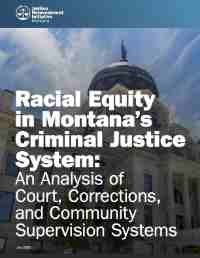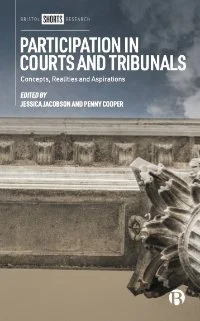By David Spencer
New guidelines produced by the Sentencing Council for judges and magistrates to follow when sentencing offenders are both significant and controversial. The Imposition of community and custodial sentences guideline, due to come into effect on the 1st April 2025, sets out the considerations for judges and magistrates when sentencing an offender who has been found or pleaded guilty in the criminal courts. The Imposition of community and custodial sentences guideline instructs courts to request and consider, prior to sentencing, a pre-sentence report before forming an opinion about sentencing. Pre-sentence reports enable the court to have as much information as possible about the offender, including the risk they pose to the public, before passing sentence. Judges and magistrates are instructed that they need not order a pre-sentence report only if they consider it unnecessary. The new guideline requires that from the 1st April 2025 a presentence report will “normally be required” when sentencing offenders from one of a whole host of different and specified groups – while some groups are included, others are excluded. In particular, those within the cohort where a pre-sentence report will “normally be required” include individuals who are from an ethnic, faith or cultural minority group. While there is nothing specifically preventing a court requesting a pre-sentence report for other offenders, those who are white or male will not, unless they can fit themselves into one of the other groupings available, qualify under the criteria that “a pre-sentence report will normally be considered necessary”. The Lord Chancellor and Secretary of State for Justice, Rt Hon Shabana Mahmood MP, has made clear that she does not agree with the new Imposition guideline and, given the Sentencing Council have refused to withdraw it, she is willing to legislate to prevent “two-tier justice”. On the 28th March 2025 the Lord Chancellor said: “I have been clear in my view that these guidelines represent differential treatment, under which someone’s outcomes may be influenced by their race, culture or religion. This is unacceptable, and I formally set out my objections to this in a letter to the Sentencing Council last week. I am extremely disappointed by the Council’s response. All options are on the table and I will legislate if necessary.” The Lord Chancellor is right. There must be no two-tier justice – which the new guideline represents – and the government should legislate without delay to correct the Sentencing Council’s error. In conversation with the authors at Policy Exchange, the Rt Hon Jack Straw – the former Lord Chancellor and Secretary of State for Justice who created the Sentencing Council – has expressed his strong support for Rt Hon Shabana Mahmood MP. He said: “I strongly support the Lord Chancellor and Secretary of State for Justice, Shabana Mahmood MP, in the position she is taking relating to the new Imposition Guideline that the Sentencing Council have published. It is clear that the Government will need to take steps to correct the error. Given the crossparty support for this to be resolved, as shown by the position of the Shadow Secretary of State, Robert Jenrick, I hope that this can be done quickly.” Pre-sentence reports, typically written by a probation officer, are key to judges and magistrates deciding whether to sentence an offender to prison or to a non-custodial community order – particularly in borderline cases. As a result, deciding which defendants are to be included in the cohorts where a pre-sentence report will “normally be required”, and which don’t, can be key in deciding who goes to prison and who doesn’t. The Sentencing Council, which produced the new guideline, is an independent non-departmental body that is sponsored by the Ministry of Justice. The Labour government, under Prime Minister the Rt Hon Gordon Brown, created the Sentencing Council through section 118 of the Coroners and Justice Act 2009. The Council commenced operations in April 2010. The framework for the creation of sentencing guidelines evolved during the period of Labour in office between 1997 – 2010. Two bodies associated with the production of guidelines for the sentencing of offenders – the Sentencing Advisory Panel and Sentencing Guidelines Council – were created (and subsequently abolished). We outline the history of this period in chapter 2 of this report. The Sentencing Council is responsible for the preparation of sentencing guidelines for judges and magistrates to follow when sentencing offenders. Section 120 of the Coroners and Justice Act 2009 specifies that the Sentencing Council must prepare: “(a) sentencing guidelines about the discharge of a court’s duty under section 73 of the Sentencing Code (reduction in sentences for guilty pleas), and (b) sentencing guidelines about the application of any rule of law as to the totality of sentences” and may prepare sentencing guidelines about any other matter. We outline how the Sentencing Council is required to operate, under statute, in chapter 3 of this report. The membership of the Council is made up of both judicial and non-judicial members. Eight members of the Council are appointed by the Lord Chief Justice with the agreement of the Lord Chancellor (“judicial members”) and six members are appointed by the Lord Chancellor with the agreement of the Lord Chief Justice (“non-judicial members”). We outline the current membership of the Sentencing Council, how members (continued_
London: Policy Exchange, 2025. 43p.








